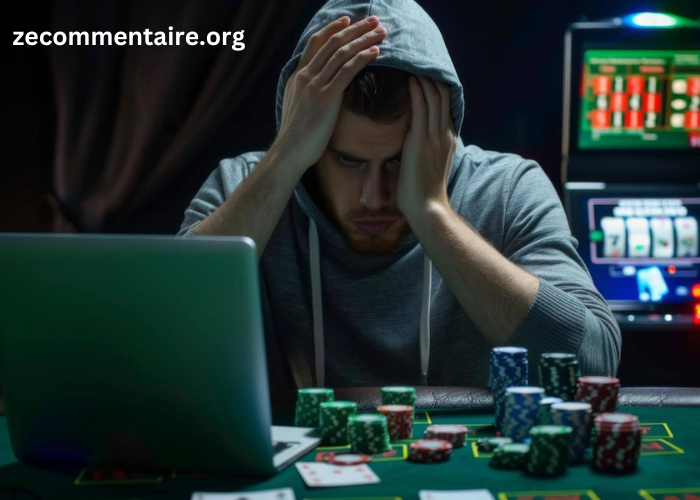Online gambling is one of the most popular forms of entertainment worldwide. While it’s often associated with fun and the potential for a huge financial windfall, it does come with several risks that gamblers should be conscious of before they start wagering their hard-earned cash. These risks, which range from regulatory issues to concerns about problem gambling, are explored in more detail below.
Lack of Regulation
Many countries have strict regulations on online gaming platforms, but even with these in place, there are many places with fewer regulations, creating a multitude of unregulated options worldwide.
This lack of regulation means that players who use these unregulated or loosely regulated platforms are not as protected as they would be with regulated sites. Players’ financial information can be put at risk, and there is also no way of ensuring fair play so that the games aren’t rigged in favour of the company rather than being truly randomised.
These unregulated platforms can also be sources of other criminal activities, such as money laundering.
Frauds and Scams
As with other online services requiring personal and financial information, such as online shopping or banking, online gambling is also subject to fraudulent activities and scams. Typically, these aim to collect players’ personal information for use or sale. Players should critically assess not only online gambling sites but also related sites that might request information or install malware.
Problem Gambling
One of the most significant concerns with online gambling is the prevalence of problem gambling. Around the world, problem gambling rates vary from 1% to 6% of a country’s population, meaning it affects a vast number of people and their loved ones.
While these percentages account for all forms of gambling, online gambling has often been the subject of scrutiny, with many fearing increased problem gambling because of it. These fears have proven to be founded, with rates of problem gambling rising in areas with easy access to online gaming options.
Gambling is an addictive activity that activates many of the same areas of the brain as other addictive behaviours. Unlike other addictions, gambling may have fewer physical signs (though, in some cases, there are some), but it can still be devastating to a person’s life.
Someone with problem gambling behaviours is typically a compulsive gambler whose betting habits have become detrimental to their health, relationships, and finances.
Mental Health Concerns
When gambling starts to negatively impact someone’s finances or life in general, it can lead to emotional distress, such as feelings of shame and guilt, and is associated with mental health struggles like low self-esteem, depression, and anxiety.
Relationship Struggles
If gambling becomes problematic, it affects many areas of a person’s life, including their personal and professional relationships. Some of this can be attributed to financial stress, but essential components of a relationship, such as trust and honesty, can become strained, as many people who struggle with problem gambling want to hide it from their loved ones and others in their lives.
Even workplace relationships and dynamics can suffer when problem gambling starts to affect performance or behaviour.
Financial Loss
The saying “the house always wins” applies not just to in-person casinos but also to online gambling platforms. Even when players get an occasional win, most of the time, more money is usually lost than won, especially with games of chance (like slot games) compared to games involving some skill (like poker).
Online gambling can easily lead to significant financial loss, causing distress and disrupting other parts of life.
How to Minimise These Risks
Thankfully, there are ways to minimise many of the risks associated with online gambling by putting in place certain precautions and following responsible gambling practices.
Use Regulated Gambling Sites
When choosing which gambling website to use, look for one that is regulated by your region. The best way to do this is to go through a government site or look for the operator’s certification and licences on the website. These ensure that the website is legitimate and will have more safety precautions to protect players from problem gambling and protect their information.
Install Anti-Virus Software
Installing a firewall and software protects your information and devices from cyber threats such as malware or viruses. These systems will protect your data beyond gambling online as they will also protect you as you go about other online activities where you use personal data.
Use Responsible Gaming Tools and Best Practices
When it comes to minimising the risk of problem gambling, there are several things you can do as a player to protect yourself. These things include:
- Set a budget and stay within it by using the deposit limits available on regulated gaming sites.
- Avoid chasing losses or wagering money you do not have.
- Set timers for how long you can play.
- Avoid gambling when drinking alcohol or when in a state of emotional distress.
- Only play unpaid versions of online betting games. For instance, you can try and win at Fire in the Hole 2 by opting for the free demo version rather than making a deposit.
- Make sure you understand the rules of the game before placing a wager.
- Use the online platform’s self-exclusion tools to restrict your access for set periods.
Final Considerations
Online gambling can be an entertaining pastime, but it’s not without risks. For gamblers who opt to play online, it’s important to verse themselves in these possible negative impacts so that they can protect themselves from fraudulent activity and concerns related to problem gambling.





